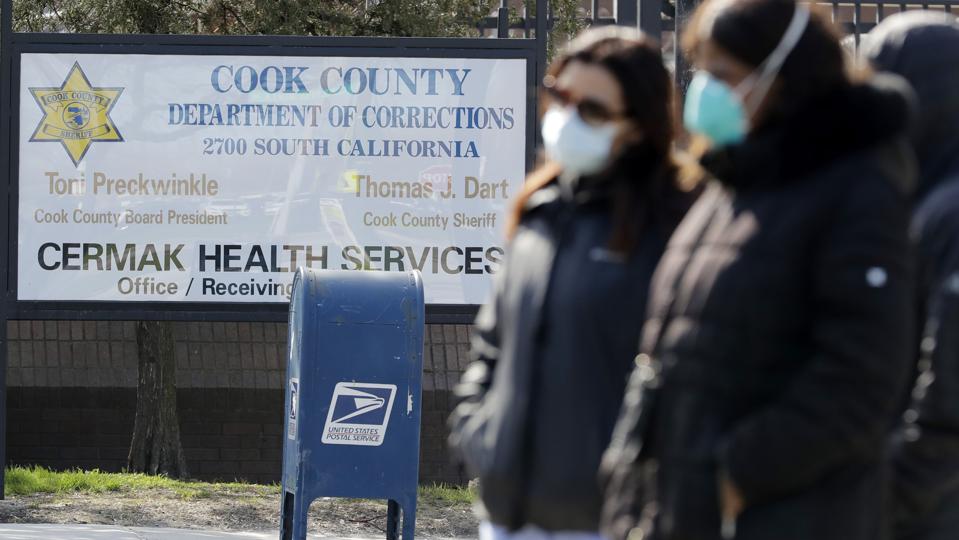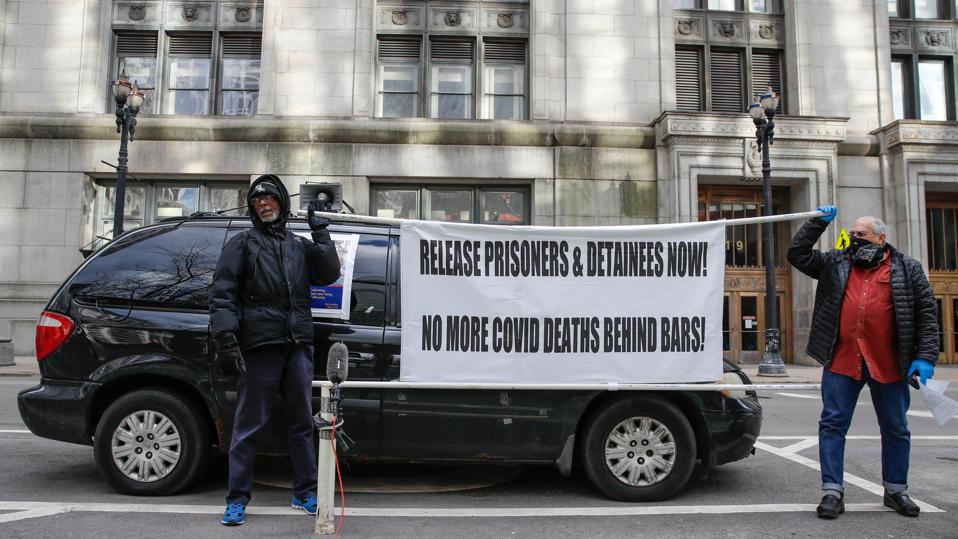As the coronavirus continues to have a meaningful impact on all aspects of the emerging cannabis industry, there is one group largely being left out of the national conversation over policy responses to the crisis: cannabis prisoners.
It is a common misconception that nobody goes to prison for cannabis offenses anymore. While very few receive jail sentences for minor marijuana possession, there are currently over 40,000 people serving time in jails and prisons across the country for violations of marijuana laws.
Many are serving time for distribution convictions. In an era in which entrepreneurs run multi-million dollar businesses that engage in essentially the same behavior, this has become an increasingly untenable and unjustifiable position. Many others languish in local jails because they can’t afford the cost of bail while awaiting trial, while other nonviolent offenders are sent to prison for a positive marijuana drug test while on probation or parole.
Needless to say, jails and prisons are ideal breeding grounds for a highly contagious and infectious virus like COVID-19. Our nation’s prison and jail system is alarmingly overcrowded, making social distancing efforts needed to help curb the spread virtually impossible. Prisons are also notoriously unsanitary environments, with a lack of basic sanitary essentials like adequate clean water and soap. In some prisons, hand sanitizer is banned outright. And of course, access to health care in prisons is inadequate at best. All of this is a recipe for the quick spread of a disease like COVID-19.

Nurses and community faith leaders participate in a protest outside the Cook County Jail in Chicago, … [+]
ASSOCIATED PRESS
Steve DeAngelo, the founder of the iconic Harborside Health Center in Oakland, California and a co-founder of the Last Prisoner Project, which works to ensure the release of all cannabis prisoners, called for all Americans to consider the plight of cannabis prisoners during this pandemic in a recent video, “Today I’m asking you to imagine what it would be like to be in a prison cell during the coronavirus. If you’re like me, you’ve been trying to bring everything you can under control—food, supplies, checking on your family and loved ones. But when you’re locked up you can’t do any of that. You have no control over your food, over social distancing, or even the air that you breathe.”
Indeed, at a time when cannabis businesses are, rightly, being deemed essential services in states across the country, in line with grocery stores, pharmacies and gas stations, it is unconscionable that anyone would have to risk not only their liberty but their life for a cannabis offense. Many of these cannabis prisoners are older, having been sentenced for their “crimes” long before the current national awakening of opposition to marijuana prohibition.
Last Prisoner Project executive director Sarah Gersten recently explained the dire need for governments across the country to release these vulnerable inmates. “Our constituents, many of whom are over the age of 60 and have underlying health conditions, are imprisoned because of a plant that has now been deemed an ‘essential’ service by jurisdictions across the country during this time of crisis. Our justice system’s response to this pandemic is effectively sentencing nonviolent cannabis offenders to death. Releasing cannabis prisoners now is not only the right thing to do from a justice perspective, but also from a public health perspective.”
Many prisons across the country have started taking extreme measures to prevent the spread of COVID-19 within their facilities. Unfortunately, these measures have typically involved keeping prisoners in their cells nearly 24 hours a day, with virtually no human contact or social interaction of any kind. This has relegated nearly all prisoners to a life of solitary confinement throughout the duration of this pandemic, even for those serving time for non-violent offenses who are otherwise not a threat to themselves or others inside of prison.
Solitary confinement is often considered a cruel and unusual punishment that results in serious impacts on prisoners, including severe anxiety, rage, paranoia, hallucinations and, in some cases, suicide. The practice has been deemed a form of torture by the United Nations. Subjecting non-violent prisoners, particularly those serving sentences for doing something that is now legal in large parts of the country, to this form of punishment is the very definition of cruel and unusual.
Yet despite these draconian measures, the number of COVID-19 cases in American jails and prisons is skyrocketing, putting the health and safety of both inmates and prison staff in grave jeopardy. The pandemic, fear of contracting the disease while incarcerated, and reaction to the harsh measures being taken to curb the spread of the virus has already resulted in prison riots, further endangering the lives of non-violent cannabis offenders.
The notion that a cannabis offense should never be a death sentence is not mere hyperbole. In fact, the very first prisoner in the United States to succumb to the disease was a man named Patrick Jones who was serving 27 years in a federal penitentiary for a non-violent drug offense. While Mr. Jones was not incarcerated for a cannabis offense, it is only a matter of time before a non-violent cannabis prisoner faces the same fate. Cannabis offenders serve time in the same prisons with the same unsanitary conditions. The coronavirus does not distinguish between offenses, it simply looks for hosts.
Thankfully some municipalities have begun taking action to reduce prison populations during the pandemic. In Detroit, 384 people had been released from Wayne County Jail as of April 1st. In Hawaii, the state Supreme Court has appointed a special master to coordinate potential releases with public defenders and prosecutors, after their call for over 400 people to be released. In New York City, America’s epicenter, hundreds have been released from Riker’s Island.

Protesters hold a sign outside of the City Hall during a rally asking to release prisoners from … [+]
AFP via Getty Images
These releases, while commendable, are only just the start of what is needed to ensure that no cannabis prisoner ever has to face death from a prison contracted coronavirus infection, or the mental anguish of indefinite solitary confinement. Efforts are currently underway to help ensure the release of these vulnerable inmates who deserved to be home with their families even before this pandemic began.
A coalition of advocacy organizations, including the Marijuana Policy Project, Last Prisoner Project, Law Enforcement Action Partnership, Clergy for a New Drug Policy, Doctors for Cannabis Regulation, National Cannabis Industry Association, Students for Sensible Drug Policy, and National Organization for the Reform of Marijuana Laws (NORML) have sent a letter calling for the release of cannabis prisoners to the National District Attorneys Association, National Governors Association, National Sheriffs’ Association, National Association of Chiefs of Police, National Correctional Industries Association, American Correctional Association, and AFSCME.
For those interested in helping this cause, the Last Prisoner Project has started a petition calling for the president, attorney general and Board of Prisons to implement emergency release measures and basic safety precautions to protect those incarcerated federally which has garnered over 10,000 signatures as of this publication. These efforts are necessary to raise awareness about this important issue and ensure that policymakers understand that this is an issue of concern to their voters and constituents.
At a time when Americans have rejected cannabis prohibition in record numbers, a new cannabis industry has generated jobs, wealth and tax revenue, and states across the country have deemed marijuana businesses to be essential services in a time of national crisis, it is unconscionable that tens of thousands of Americans now face serious harm or death as a result of a cannabis conviction. It is time to release all remaining cannabis prisoners in the United States. Today.